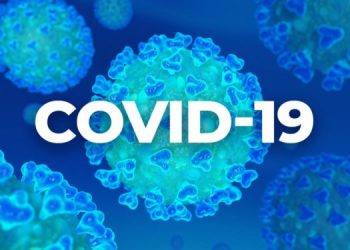
[ad_1]
Claims by the Ghanaian Federation of Traditional Medicine Practitioners (GHAFTRAM), accusing the Food and Drugs Authority (FDA) of misleading the public about the use of the plant Criptolepis sanguinolenta, known locally as Nibima for treatment of COVID-19, are worrying and should be viewed as bogus by those who have closely followed the recent media attacks against the FDA by the Federation, regarding the use of Nibima for the COVID-19 clinical trial.
In a press release dated Feb. 1, 2021, the FDA mentioned that it had approved Criptolepis sanguinolenta (Nibima) for clinical trials for possible COVID-19 treatment. Indeed, a related press release from the COVID-19 clinical team of the Kwame Nkrumah University of Science and Technology, attested that the herbal medicine in question was not intended for a treatment in its finality but for a clinical trial. phase II in COVID-19 patients.
However, a publication in the Informer journal of Friday, February 5, 2021, with the headline, “Confusion Persists Over Nibima Medicine… As Traditional Herbalists Expose FDA…” accused the FDA of misleading and creating a misunderstanding among the public regarding the approval of herbal medicine as a cure for the virus.
False allegations
In fact, no part of the FDA statement mentioned that Nibima could cure the dreaded COVID-19. The statement read in part: “In the ongoing treatment research for the COVID-19 pandemic, researchers from the KNUST School of Public Health submitted a clinical trial request in September 2020 to assess the safety and efficacy of Cryptolepis Sanguinolenta as a potential treatment for COVID-19 ”.
Conversely, it is unfortunate that said newspaper alleged that the FDA deceived the public into approving Nibima as a cure for COVID-19. The second paragraph of Informer’s story reads: “The KNUST statement was intended to clarify the general public’s misunderstanding of Nibima as a cure for the virus, fueled by the FDA.” However, the document failed to understand that KNUST and the FDA were communicating the same procedure and messages in their separate statements.
The newspaper gave the impression that the FDA, through its publication, confirmed the efficacy of Nibima for the final treatment of COVID-19, which is false and does not correspond to the position of the Authority in the press release. . The statement was categorical about “possible clinical benefits” based on the initial results, which is what KNUST said in its statement.
Favoritism
The suspicions and allegations of favoritism to the detriment of GHAFTRAM and the herbalists in the same Inform story are also irrelevant. GHAFTRAM Secretary Nana Kwadwo Obiri reportedly said the association has submitted 33 different herbal products to the FDA and the Department of Health for approval for COVID-19 treatment.
GHAFTRAM, he said, was then surprised that the FDA decided to approve another herbal drug without the knowledge of the combination. The question here is, “Should the FDA notify or initiate the herbal medicine association before considering and approving clinical trials of this nature?”
Indeed, reliable information indicates that the 33 medicinal plants were submitted to the Minister of Health, who then presented them to the Center for Research in Plant Medicine (CRPM), Mampong, for further studies to be done before approval. These 33 drugs were not presented to the FDA as the Informer story claimed.
Key questions
Is GHAFTRAM aware that all 33 medicinal plants should go through CPMR testing? If not, then obviously the Federation does not recognize the role of the CPMR in such matters. If so, then these grievances must be transmitted to the CPMR for answers and not to the FDA. In addition, 33 products will certainly take a long time to be tested and for the best due diligence. It should be borne in mind that even the herbal product Nibima was submitted in September 2020 and it was not until February 1 that it met all the necessary requirements to begin clinical trials. This is only one product, it takes almost six months for the answers to be provided. How many 33 more products?
Ghana’s robust herbal medicine industry
It is important to note that the FDA, through regulations, has made Ghana’s herbal medicine industry a envy for many countries on the African continent. In testimony to this position, my findings revealed that other countries like Rwanda, Ethiopia and Kenya have come to Ghana through the FDA to study our industry. It is therefore imperative for us as a country to respect and build on these legacies. The impression created by GHAFTRAM in said articles indicates that the FDA was against the native herb industry.
Bad faith
GHAFTRAM Secretary Nana Kwadwo Obiri, who was a member of the FDA board of directors, her federation claims, has shown some bad faith through statements in the articles, with full intention to regulate the affairs of the public domain.
Nana Kwadwo Obiri should not have projected her stands as being more in the interest of GHAFTRAM than of the FDA and vice versa, since he represents both entities.
At best, such allegations and claims, even if they had been held to be true, could have been settled internally without necessarily raising public accusations.
Conclusion
As the FDA becomes more focused in its regulatory role to navigate the country through this pandemic, key stakeholders, including GHAFTRAM, can only collaborate and contribute to the national effort to collectively fight the virus.
Nana Kwadwo Obiri, secretary of GHAFTRAM
Bloody cryptolepis
Source link